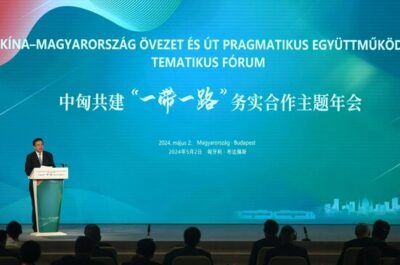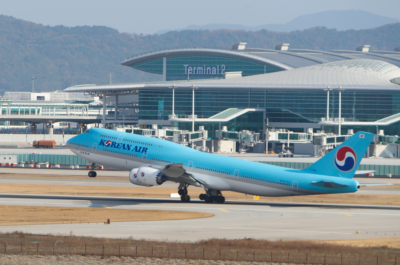In an expression of support for the United Nations Environment Program and its campaign to ”Kick the Carbon Habit” announced here in Wellington, UNWTO issues its 2008 Report on “Climate Change and Tourism, Responding to Global Challenges” developed in cooperation with the UN Environmental Programme (UNEP)…
 In an expression of support for the United Nations Environment Program and its campaign to ”Kick the Carbon Habit” announced in Wellington, UNWTO issues its 2008 Report on “Climate Change and Tourism, Responding to Global Challenges” developed in cooperation with the UN Environmental Programme (UNEP) and the World Meteorological Organization (WMO).
In an expression of support for the United Nations Environment Program and its campaign to ”Kick the Carbon Habit” announced in Wellington, UNWTO issues its 2008 Report on “Climate Change and Tourism, Responding to Global Challenges” developed in cooperation with the UN Environmental Programme (UNEP) and the World Meteorological Organization (WMO).
- UNWTO reaffirms its own “Davos Declaration Process” undertaken to support the UN’s Bali Roadmap and the need for a comprehensive process of adaptation, mitigation, technology and financing to respond to the challenge of climate change, while maintaining the development agenda.
- UNWTO urges the tourism sector to search for innovation as a major factor in seeking long term climate neutrality and calls for strengthened public/private sector commitment to share techniques, technology and data. In this context it is pleased to announce its collaboration with UN’s International Civil Aviation Association to promote ICAO’s new air travel carbon calculator.
Tourism’s contribution to human development is undisputed – as an economic growth engine for rich and poor nations, as a force for social and cultural cohesion, as a vehicle for environmental stewardship – particularly in emerging and least developed markets. With some 900 million international arrivals last year and 1.6 billion forecast for 2020 the challenge is to consolidate and focus the benefits, while continuously reducing the carbon footprint.
The tourism sector needs to rapidly respond to climate change if it is to develop in a truly sustainable manner – reducing its own greenhouse gas (GHG) emissions intelligently and responding expeditiously to the impacts on its own operations. This will require actions to:
- mitigate GHG emissions from the sector, derived especially from transport and accommodation activities;
- adapt tourism businesses and destinations to changing climate conditions;
- apply existing and new technologies to improve energy efficiency; and
- secure financial resources to assist regions and countries in need.
“We are confident of our sector’s ability to play its part in the establishment of an effective and comprehensive global climate response framework”, said UNWTO Secretary-General, Francesco Frangialli. “We have been working in close collaboration with UNEP and WMO for many years to analyse the impacts, the stress points and the lines for effective response in both the long and the immediate term. We also know that climate change cannot be addressed without losing sight of other humanitarian and development priorities, particularly tourism’s overall contribution to economic growth and to the UN Millennium Development Goals. We are making all efforts to ensure that tourism will manage to reduce its contribution to GHG at a faster rate than the growth rate of international and domestic tourist movements, thus continuing to play a key role in the fight against poverty and serve as a tool for developing countries economic and social growth.”
According to the Executive Director of UNEP, Achim Steiner, “Tourism can assist in combating poverty in developing countries, in reducing its own carbon footprint and make a contribution to the conservation of natural and nature-based resources”.
Secretary-General of WMO Michel Jarraud, renews his call for “governments and the industry to strengthen climate-tourism partnerships and to incorporate climate factors in tourism policies, development and management plans, so as to ensure a sustainable future for the sector”.
The report “Climate Change and Tourism: Responding to Global Challenges” – (highlights below) provides the basis for the sector to address the global phenomenon of climate change. Furthermore, it suggests ways to develop practical tools that can be used by tourism policy-makers and managers to foster the sustainable growth of the industry.
The technical part of the report analyzes the relations between tourism and climate change, the impact of climate change at destinations, the adaptation options and strategies as well as the implications for tourism demand patterns.
The economic section contains the first detailed assessment ever made of GHG emissions from tourism related activities, together with an analysis of mitigation policies and measures.
Attending the official World Environment Day celebrations in New Zealand, UNWTO Assistant Secretary-General Professor Geoffrey Lipman added that “our report underscores the threats and the opportunities. It confirms the fact that tourism contributes some 5% of greenhouse gas – in line with its global economic impact and way below its development contribution in poor countries. It identifies institutional change directions for transport, accommodation and all tourism service providers, as well as the users – business and leisure. Last year’s Davos Declaration Process provided the broad directions for all the tourism stakeholders. Now it’s all about implementation. We will increase our collaboration within the UN family and our efforts to bring the public and private sector’s full capacity to bear on this issue. Innovation is the big opportunity.”
“In this regard” Lipman added, “UNWTO is pleased to announce a collaborative arrangement with ICAO, whereby UNWTO will promote application of a newly-launched ICAO Carbon Emissions Calculator, a tool and guidance for calculating the carbon dioxide from air travel. The Calculator is unbiased, transparent and was vetted by the international aviation community.”
Going forward, UNWTO’s focus will be on the advancement of the Davos Declaration Process and its implementation across the sector and with travellers. It will underscore the value to society of a coherent strategy for tourism growth to promote development, while systematically reducing its carbon footprint and seeking long term climate neutrality.
This will include a campaign for “Tourism – Responding to the Challenge of Climate Change” focusing on World Tourism Day – 27 September highlighting innovation and public/private sector collaboration. It will also incorporate a series of regional level adaptation, mitigation and innovation awareness and capacity building activities around the world, as well as a follow up Tourism Ministerial level event during World Travel Market in November 2008.
As UNWTO’s new report concludes, “The evidence is clear that the time is now for the tourism community to advance its strategy to address what must be considered the greatest challenge to the sustainability of tourism in the 21st century”.
Theodore is the Co-Founder and Managing Editor of TravelDailyNews Media Network; his responsibilities include business development and planning for TravelDailyNews long-term opportunities.























































